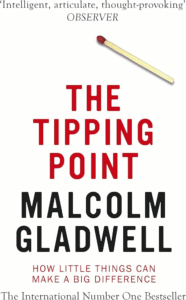A Centrist Victory in a Polarized Landscape: Nicușor Dan’s Ascent to Romania’s Presidency
The Significance of a Centrist Triumph
The recent Romanian presidential election concluded with a significant outcome, seeing centrist candidate Nicușor Dan secure victory over a hard-right nationalist challenger. This result is more than just a change in leadership; it reflects complex political currents within Romania, the broader European context of rising populism, and the enduring appeal of a moderate path amidst societal divisions. Dan’s triumph offers a nuanced look at the electorate’s priorities, the effectiveness of his campaign strategy, and the potential implications for Romania’s future trajectory.

Resisting the Tide of Nationalism
Nicușor Dan’s win is particularly noteworthy given the prevailing political climate in Europe, where nationalist and far-right movements have gained considerable traction in recent years. His victory against a hard-right nationalist contender suggests a resistance to such trends in Romania, or at least a significant portion of the electorate prioritizing stability, democratic norms, and perhaps a more pragmatic approach to governance. Dan, known for his background as a civil society activist, mathematician, and former Mayor of Bucharest, has consistently positioned himself as an alternative to traditional party politics, emphasizing transparency, anti-corruption, and urban development. His appeal likely resonated with voters weary of political infighting and seeking a leader focused on tangible improvements rather than ideological fervor.
Navigating a Divided Nation
The “tense” nature of the presidential race underscores the deep divisions within Romanian society. The strong performance of the hard-right nationalist candidate indicates a significant segment of the population that feels disenfranchised or attracted to more radical political narratives. These narratives often tap into anxieties about national identity, economic insecurity, and dissatisfaction with established political elites. Dan’s challenge was to bridge these divides, or at least to galvanize a sufficient majority around his centrist platform. His success suggests an effective campaign that managed to mobilize a diverse coalition of voters, likely including urban liberals, disillusioned moderates, and those prioritizing good governance over extremist rhetoric.
Implications for Romania and Europe
Looking ahead, Nicușor Dan’s presidency will be a test of his ability to deliver on his promises and navigate a potentially fragmented political landscape. His centrist position could allow for greater cooperation across the political spectrum, fostering stability and facilitating reforms. However, he will also face the challenge of addressing the root causes of the nationalist sentiment that his opponent effectively tapped into. This includes tackling issues such as corruption, economic disparities, and strengthening public institutions – areas where a focus on transparency and pragmatism, as championed by Dan, could yield positive results. Furthermore, Dan’s victory sends a signal within the European Union. In an era where democratic backsliding and the rise of illiberal forces are constant concerns, Romania’s choice of a centrist leader can be interpreted as a reaffirmation of its commitment to European values and democratic principles. This could strengthen Romania’s standing within the EU and contribute to a more balanced political discourse in the region.
In conclusion, Nicușor Dan’s success in Romania’s presidential election represents a notable centrist victory in a European political landscape often characterized by polarization. It highlights the potential for pragmatic, anti-corruption platforms to resonate with voters seeking stability and effective governance. While challenges undoubtedly lie ahead in addressing societal divisions and implementing reforms, Dan’s presidency offers a promising outlook for Romania’s democratic development and its continued integration within the broader European framework.










